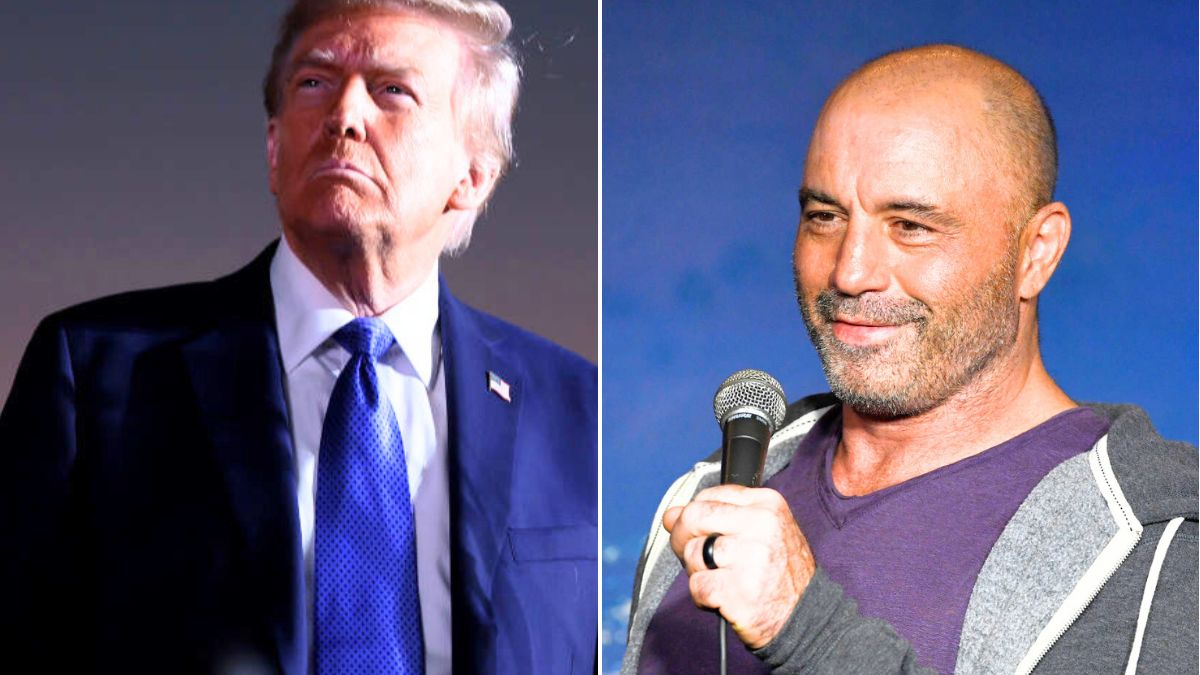‘Embarrassing isn’t a strong enough word’: Donald Trump’s three-hour Joe Rogan interview isn’t impressing anyone

Donald Trump’s marathon three-hour appearance on The Joe Rogan Experience on Friday, October 25, proved a meandering display of unchallenged claims and diverted questions that left many critics unimpressed. Ths includes progressive commentator Kyle Kulinski, who called it “by far the single worst interview of a major political candidate I’ve ever seen.”
The session with Rogan, who once labeled Trump an “existential threat to democracy” but has since softened his stance, featured the former president’s characteristic speaking style he calls “the weave”—a series of tangential topics that often went unchecked by his host. When pressed on his false claims about the 2020 election, Trump deflected, saying, “We’ll do it another time,” before changing the subject.
The interview’s rambling nature manifested in peculiar exchanges about life on Mars, with Trump insisting “there’s no reason not to think that Mars and all these planets don’t have life,” a claim Rogan had to correct by noting NASA’s extensive exploration of the Red Planet.
Aside from the weird meandering, Trump’s problematic statements, including calling his domestic opposition “the enemy from within” and describing The View hosts as “stupid,” sailed right past a seemingly unconcerned Rogan with minimal to no pushback. The podcast host’s inability (or unwillingness) to challenge Trump’s assertions in a meaningful way, especially notions related to his all-consuming desire for personal loyalty over democracy, highlighted the limits of this format for substantive political discourse—even over three hours.
The extended conversation came at a cost to Trump’s campaign schedule. His subsequent rally in Traverse City, Michigan, started three hours late, causing supporters to wait in cold temperatures before many ultimately left. “I am so sorry,” Trump told the remaining crowd. “We got so tied up, and I figured you wouldn’t mind too much because we’re trying to win.”
The interview’s reception suggests it may have missed its mark with both critics and supporters. While aimed at reaching Rogan’s considerable audience of young male voters—he commands 14.5 million Spotify followers—the conversation’s lack of focus and substance and Rogan’s reluctance to drop his cordiality at any point over three houses drew widespread criticism.
Whatever the plan or goal was for the interview, it’s unlikely it hit the mark. If it did anything useful at all, it showcased Trump’s tendency to blather, avoid direct answers, and make unsubstantiated claims without meaningful examination. More to the latter point, he detailed his increased penchant for lying as a point of strength, meaning that lying has no consequence for him because he knows he’s not being measured the way a normal candidate should.
For a campaign seeking to broaden its appeal through alternative media—or at least muffle the fascist label—the three-hour investment may have yielded more questions than answers about the candidate’s preparedness for office.
Have a tip we should know? tips@themarysue.com